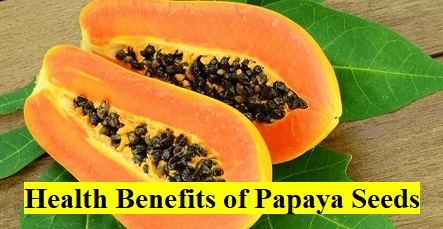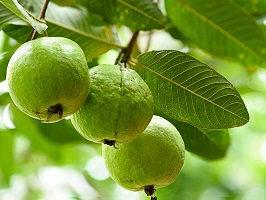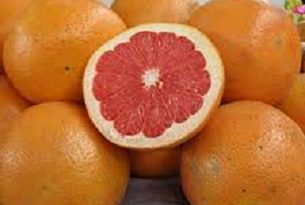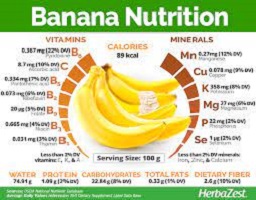Top 15 Health Benefits of Papaya Seeds
Top 15 Health Benefits of Papaya Seeds
The health benefits of Papaya seeds are:
- Powerful Antioxidant: Papaya seeds are rich in polyphenols, flavonoids, alkaloids, tannins, and saponins.
- Nephroprotective
- Maintains Cardiovascular Health
- Reduces inflammation
- Good for our Skin
- Antibacterial
- Relieves Menstrual Pain
- Manage Liver Cirrhosis
- Healthy Gut
- Helps in Weight Loss
- Lowers Cholesterol Levels
- Anti-cancer Properties
- Cures Food Poisoning
- Supports Dengue Treatment
- May Help With Dandruff Control
Papaya Seeds: Benefits, Uses, Side Effects & More
Do you usually remove the papaya’s tiny black seeds after purchasing them?
Many people discard papaya seeds in the trash because they are unaware of the many health benefits of the seeds.
Next time, keep them because they have numerous potent and amazing health advantages. Eat them whole instead, add them to a smoothie, or process them into a paste.
Since ancient times, this amazing fruit has been used as a natural remedy in countless cultures to treat everything from fever to menstrual pain.
Papaya seeds are excellent for enhancing overall health. Papaya seeds have a variety of advantages and applications.
About Papaya Seed

Although papayas are practically ubiquitous, people prefer to eat the fruit rather than the seeds, which are typically thrown away.
But there is enough evidence to support the claim that the seeds are quite potent and offer several benefits when regularly consumed.
Although there may be seedless papayas available, those with the seeds inside are thought to be better and more authentic. The seeds are typically black.
Papaya seeds must first be sun-dried before use. Numerous recommendations from experts have been made regarding how to consume the seeds.
In some cases, it can be chewed without being ground into a powder; in other instances, it must be mixed with water, milk, or honey as directed.
Origin and Cultivation of Papaya Seed
Though its precise origin is unknown, papaya is thought to have originated in the lowland tropics of South America and Mexico. Papayas can currently be grown in the tropics and the warmest parts of the subtropical region.
Fruit papaya must be grown in healthy soil, in an environment free of frost, and with plenty of water and sunlight.
Papaya seeds can grow into a tree and begin bearing fruit in six to ten months if all of the aforementioned conditions are met. Papaya trees can live for up to 4-5 years with proper care.
Nutrition in Papaya Seeds
Papaya seeds are a rich source of nutrients, according to a University of Florida study.
In addition to carpaine, benzyl glucosinolate, myrosin enzyme, and various phytochemicals that help fight cancerous cells, they also contain vitamins A and C, folate, fatty acids, crude fiber, and protein.
Another study found that between 30 and 35 percent of papaya fruit are seeds, with the remainder being pulp.
The papaya seed has a 27–28% protein content, a 28–30% lipid content, and a 19–22% crude fiber content.
Monounsaturated fatty acids are also abundant in papaya seed oil.
How Can I Tell If a Papaya Seed Is Male or Female?
There are three distinct varieties of papaya, according to the Food and Fertilizer Technology Center: male, female, and hermaphrodite.
After three to six months of cultivation, these are distinguishable.
The seeds of a female papaya have a light color coat on top, whereas the seeds of a male papaya have a dark color coat.
Recipes to Add Papaya Seed to Your Diet
You must incorporate papaya seeds into your diet to fully benefit from their health-promoting properties.
Here are a few quick recipe suggestions to help you do that:
A smoothie, vinaigrette, or salad dressing can all be made with raw seeds. You can also store them in the fridge for later use. This could add a bitter flavor, so balance it out with other flavors.
Clean, dry, and bake the papaya seeds, then crush them into a powder and stir them into your preferred spice blend.
Marinate the papaya seeds in a mixture of lemon zest, cream, lemon juice, chopped garlic, and cilantro.
How to Eat Papaya Seeds?
You can eat papaya seeds in a variety of ways to reap their health benefits.
- You can add 8–10 dried papaya seeds to your food or shakes and smoothies, or you can chew them.
Papaya seeds can also be made into a paste by grinding them. To the paste, you can add honey or jaggery and eat it.
The benefits of papaya seeds
Numerous health advantages of papaya exist. Let’s examine some of the most important advantages of papaya seeds:
- Aids in the Battle against Cancer: Studies show that the papain enzyme found in papaya seeds is effective in destroying the walls of cancer cells. Additionally, it has anti-cancer qualities.
- Regulates Blood Sugar Levels Flavonoids, a naturally occurring antioxidant with a low glycemic index, are abundant in papaya seeds.
- Papaya has a GI of 60, which means that it does not cause a significant rise in blood sugar. As a result, papaya seeds can help diabetics control their blood sugar levels. Papaya seeds can be crushed or ground and added to food.
- Boosts Immune System: Because papaya seeds are a good source of vitamins A and C, they are good for boosting immunity and fighting infections.
- Papaya seeds have anti-inflammatory properties that help to lessen inflammation in the joints and digestive system. It helps with arthritis as well. Papaya seeds can be ground into a paste that you can use to treat the desired skin condition.
- Beneficial for Dengue and Malaria: Due to their antibacterial and anti-inflammatory properties, papaya seeds are also frequently used to treat dengue and malaria.
Benefits of Papaya Seeds for Skin In addition to being good for our general health,
Papaya seeds have the following benefits for our skin:
- Treats Pigmentation; Controls Acne; Prevents Aging
Papaya Seeds Benefits for Liver
The papaya seeds’ nutrients aid in liver detoxification. They contribute to liver cirrhosis.
The amino acids can be broken down more easily thanks to the enzymes papain and chymopapain found in papaya seeds.
This supports the liver’s efficient operation. The papaya seeds’ antioxidant content also lessens liver inflammation.
Papaya Seeds for Losing Weight
Papaya is good for our digestive system. In addition to 125g of water, a cup of raw papaya has 62 calories, 0.4g of fat, 15g of carbohydrates, and nearly 2.5g of fiber.
Fruit papaya fills our stomachs without causing us to consume additional fat because it has few calories and high water content.
A digestive aid is provided by the papain enzyme found in papaya seeds. To lose weight, take dried papaya seeds in powder or paste form.
Cortisol and Papaya Seeds
Cortisol has a variety of functions in the body, including fighting stress, regulating blood pressure, keeping blood sugar levels stable, reducing inflammation, and supporting a strong immune system.
Does the list above sound familiar? Papaya seeds can aid in the majority of these activities.
Papaya seeds can assist the body in maintaining order when it has adrenal fatigue syndrome and the adrenal glands are not producing enough cortisol.
The Papaya Seed Oil
Papain, a naturally occurring exfoliating enzyme that removes dead skin cells and leaves the skin smooth and radiant, is abundant in papaya seed oil.
Additionally, it contains a lot of vitamin C, which helps to protect the skin from oxidative stress, fight wrinkles and fine lines, and regenerate skin.
Papaya Seed Oil’s anti-inflammatory properties can help with acne, and this thin, non-greasy oil doesn’t clog pores or produce extra sebum.
Patients with cancer benefit from papaya seeds
The ability to prevent cancer is a further health advantage of papaya seeds.
This is accomplished by the presence of acetogenin, a compound found in the milky sap found in papaya seeds.
This substance can stop the growth of cancer cells. Scientific investigation has confirmed this.
The Japanese are one of the cultures mentioned as using papaya seeds while drinking tea. To stay healthy, they are said to add a few papaya seeds to their tea.
Papaya Seeds for Natural Birth Control
The papaya seeds can also be used as a form of natural birth control.
Papaya seeds can be a good and healthy alternative to any other method of contraception if the couple is reluctant to take pills to prevent unintended pregnancies.
To be able to conceive in the future, it is advised to seek the advice of a professional.
Papaya seeds are used for birth control by both sexes. It should be taken as directed for 90 days.
Benefits of Papaya Seeds for the Kidney
Papaya seeds can also support healthy kidney function.
It is advised to take 7 seeds, 7 times per day. Chewing the seeds raw will accomplish this.
According to experts, while regular consumption of papaya seeds can help to ward off any kidney-related diseases, it can also be effective in treating any kidney issues that may already be present.
Use of Papaya Seeds
Here’s how to use papaya seeds to maximize your advantages:
- Black Pepper: Dried papaya seeds are frequently used in foods such as black pepper.
- Papaya Seeds Paste: You can apply a paste made from ground papaya seeds to your face and neck to get skin benefits.
Papaya Side Effects
Even though papaya has many health advantages, eating too much of it can have serious negative effects, including:
- Skin Burning; • Possibility of Miscarriage
What are the side effects of papaya seeds?
Even though papaya has many health advantages, excessive consumption can have negative effects.
If consumed in excess, the benzyl glucosinolate found in papaya seeds can cause food poisoning.
The Bottom Line

Papaya seeds are nutrient-dense and contain many of the vitamins, minerals, enzymes, and antioxidants that your body requires. They can aid in both detoxification and inflammation reduction.
That combination is excellent for skin health and anti-aging in addition to preventing illness and lowering the risk of disease.
Papaya seeds reduce stress and help with many processes that cortisol regulates, which makes them beneficial for recovering from adrenal fatigue.
But it’s crucial to realize that not everyone would benefit from something just because it’s natural or appropriate in every situation.
Consuming papaya seed while expecting, nursing, or taking blood thinners is not advised.
Because the papaya’s enzymes may affect the unborn child’s growth, pregnant women should avoid eating the fruit, seeds, or leaves of the papaya.
Papaya should also be avoided while nursing because it can decrease milk production.
Consuming papaya seeds while taking blood-thinning medication is also not advised because it can make the blood thinner.
Is it OK to eat papaya seeds?
After cutting the papaya, some people discard the seeds. Remember that the seeds are also edible, so eating them is not prohibited.
The seeds are the ideal seasoning for many dishes because of their crunchy texture and mildly peppery flavor.
Is papaya good for kidneys?
The fruit’s potassium content is a major advocate for kidney health.
It eliminates the toxins built up in the kidneys and lessens uric acid buildup in the blood. Payapa seeds are essential for maintaining a healthy kidney.
What fruits help cleanse the kidneys?
All berries, including cherries, blueberries, raspberries, strawberries, and strawberries, support kidney health.
Additionally, raspberries contain ellagic acid, an antioxidant that has been shown to guard against some cancers and kidney diseases.
How to use pawpaw seed for kidney disease?
For three weeks, fresh papaya seeds should be consumed orally in the morning. About 15-20 seeds should be chewed each day.
After chewing the seeds, drink 200-500 ml of water 30 minutes later. Papaya seeds can repair kidney damage caused by the filtering process.
Which fruit is not good for kidney disease?
Bananas and avocados are high in potassium, making them unsuitable for people with diabetes and kidney disease.
Choose fruits low in potassium instead, like grapes, berries, and pineapple, and consume them in moderation
Can papaya dissolve kidney stones?
contain significant potassium content (more than 350g per serving). Consuming potassium-rich foods can reduce your risk of developing kidney stones.
Bananas, cantaloupe, honeydew melon, orange juice, and papaya are a few foods high in potassium.
Is papaya healthy for kidney and diabetes?
Fruit is typically part of a healthy diet, but some fruits have a higher natural sugar content, making eating too much of them bad for blood sugar levels.
Can I eat papaya if I have diabetes, you might wonder. The good news is that eating papaya while having diabetes is safe.


